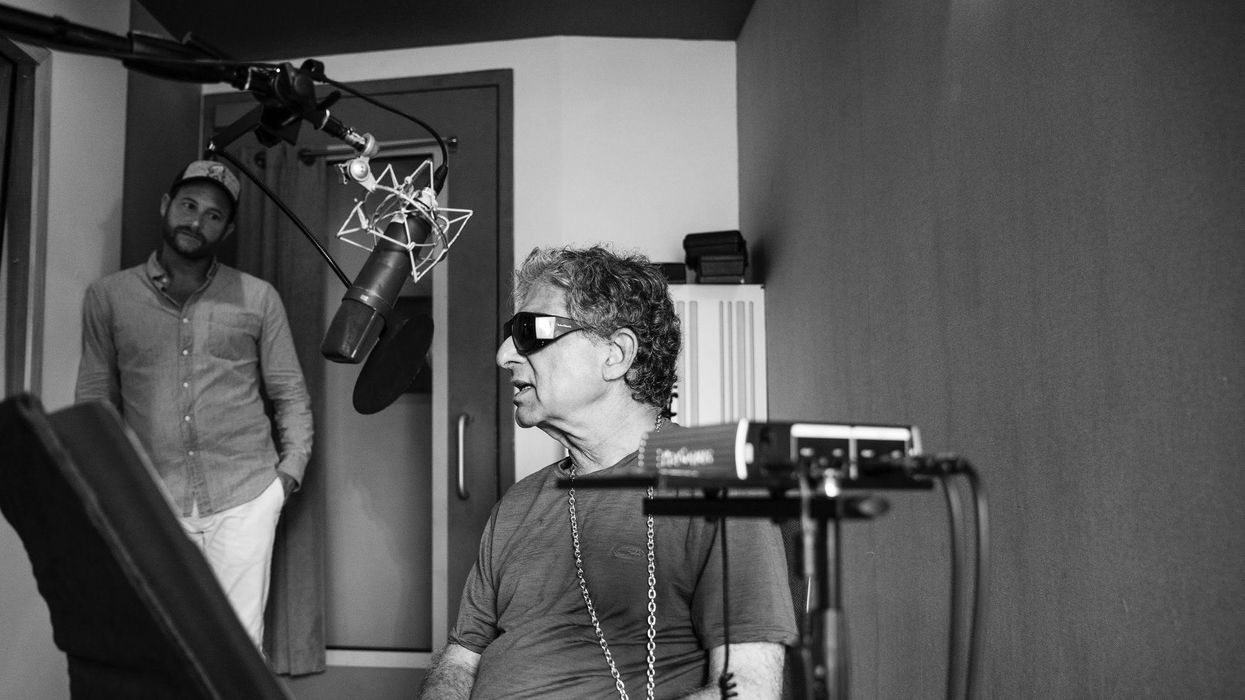Podcast: The Science of Recharging Your Energy with Sara Mednick
For today's podcast episode, Leaps.org talks with Sara Mednick, author of The Power of the Downstate, a book about the science of relaxation - why it's so important, the best ways to get more of it, and the time of day when our bodies are biologically suited to enjoy it the most.
If you’re like me, you may have a case of email apnea, where you stop taking restful breaths when you open a work email. Or maybe you’re in the habit of shining blue light into your eyes long after sunset through your phone. Many of us are doing all kinds of things throughout the day that put us in a constant state of fight or flight arousal, with long-term impacts on health, productivity and happiness.
My guest for today’s episode is Sara Mednick, author of The Power of the Downstate, a book about the science of relaxation – why it’s so important, the best ways to go about getting more of it, and the time of day when our bodies are biologically suited to enjoy it the most. As a cognitive neuroscientist at the University of California, Irvine, Mednick has a great scientific background on this topic. After getting her PhD at Harvard, she filled her sleep lab with 7 bedrooms, and this is where she is federally funded to study people sleeping around the clock, with her research published in top journals such as Nature Neuroscience. She received the Office Naval Research Young Investigator Award in 2015, and her previous book, Take a Nap! Change Your Life was based on her groundbreaking research on the benefits of napping.
In our conversation, we talk about how work and society make it tough to get stimulation like food and exercise in ways that support our circadian rhythms, and there just as many obstacles to getting sleep and restoration like our ancestors enjoyed for 99 percent of human history. Sara shares some fascinating ways to get around these challenges, as well as her insights about the importance of exposure to daylight and nature vs nurture when it comes to whether you’re a night owl or an early bird. And we talk about how things could change with work and lifestyles to make it easier to live in accordance with our biological rhythms.
Show notes
3:10 – The definition of “upstates” and “downstates”
5:50 – The power of 6 slow, deep breaths per minute to balance the nervous system
9:05 – Watching out for mouth breathing and email apnea
13:30 – Different ways of breathing for different goals
16:35 – Body rhythms – what is heart rate variability and why is it so important?
21:05 – Are you naturally a morning or night person? Nature vs nurture
27:10 – The perfect storm that gets in the way of following our circadian rhythms
29:15 – The evolution of our pre-bedtime downstates – why it's important to check in with your cave mates
30:10 – The culture shift needed for more people to follow their circadian rhythms and improve their health
35:10 – Employers and communities can build downstates into daily work and life
38:15 – Choosing how we react to the world
41:00 – Being smarter about peak performance
45:09 – The science of pacing yourself for long-term productivity
49:42 – The science of light exposure for circadian rhythms
52:20 – Where to learn more about Sara Mednick’s research and writing
Links:
Sara Mednick’s website https://www.saramednick.com/ and her Twitter
Mednick’s recent book - The Power of the Downstate
Mednick’s book on the benefits of napping - Take a Nap! Change Your Life
The blue light blocking glasses recommended in Mednick’s book https://www.amazon.com/dp/B019C3O2UE?psc=1&ref=ppx_yo2ov_dt_b_product_details
An app for measuring heart rate variability - Elite HRV app https://elitehrv.com/
Thorne take-home Melatonin test
Podcast: The Friday Five weekly roundup in health research
Researchers are making progress on a vaccine for Lyme disease, sex differences in cancer, new research on reducing your risk of dementia with leisure activities, and more in this week's Friday Five
The Friday Five covers five stories in health research that you may have missed this week. There are plenty of controversies and troubling ethical issues in science – and we get into many of them in our online magazine – but this news roundup focuses on scientific creativity and progress to give you a therapeutic dose of inspiration headed into the weekend.
Covered in this week's Friday Five:
- Sex differences in cancer
- Promising research on a vaccine for Lyme disease
- Using a super material for brain-like devices
- Measuring your immunity to Covid
- Reducing dementia risk with leisure activities
Podcast: Wellness chatbots and meditation pods with Deepak Chopra
Leaps.org talked with Deepak Chopra about new technologies he's developing for mental health with Jonathan Marcoschamer, CEO of OpenSeed, and others.
Over the last few decades, perhaps no one has impacted healthy lifestyles more than Deepak Chopra. While several of his theories and recommendations have been criticized by prominent members of the scientific community, he has helped bring meditation, yoga and other practices for well-being into the mainstream in ways that benefit the health of vast numbers of people every day. His work has led many to accept new ways of thinking about alternative medicine, the power of mind over body, and the malleability of the aging process.
His impact is such that it's been observed our culture no longer recognizes him as a human being but as a pervasive symbol of new-agey personal health and spiritual growth. Last week, I had a chance to confirm that Chopra is, in fact, a human being – and deserving of his icon status – when I talked with him for the Leaps.org podcast. He relayed ideas that were wise and ancient, yet highly relevant to our world today, with the fluidity and ease of someone discussing the weather. Showing no signs of slowing down at age 76, he described his prolific work, including the publication of two books in the past year and a range of technologies he’s developing, including a meditation app, meditation pods for the workplace, and a chatbot for mental health called Piwi.
Take a listen and get inspired to do some meditation and deep thinking on the future of health. As Chopra told me, “If you don’t have time to meditate once per day, you probably need to meditate twice per day.”
Highlights:
2:10: Chopra talks about meditation broadly and meditation pods, including the ones made by OpenSeed for meditation in the workplace.
6:10: The drawbacks of quick fixes like drugs for mental health.
10:30: The benefits of group meditation versus individual meditation.
14:35: What is a "metahuman" and how to become one.
19:40: The difference between the conditioned mind and the mind that's infinitely creative.
22:48: How Chopra's views of free will differ from the views of many neuroscientists.
28:04: Thinking Fast and Slow, and the role of intuition.
31:20: Athletic and creative geniuses.
32:43: The nature of fundamental truth.
34:00: Meditation for kids.
37:12: Never alone.Love and how AI chatbots can support mental health.
42:30: Extending lifespan, gene editing and lifestyle.
46:05: Chopra's mentor in living a long good life (and my mentor).
47:45: The power of yoga.
Links:
- OpenSeed meditation pods for people to meditate at work (Chopra is an advisor to OpenSeed).
- Chopra's book from 2021, Metahuman: Unleash Your Infinite Potential
- Chopra's book from 2022, Abundance: The Inner Path to Wealth
- NeverAlone.Love, Chopra's collaboration of businesses, policy makers, mental health professionals and others to raise awareness about mental health, advance scientific research and "create a global technology platform to democratize access to resources."
- The Piwi chatbot for mental health
- The Chopra Meditation & Well-Being App for people of all ages
- Only 1.6 percent of U.S. children meditate, according to the National Center for Complementary and Integrative Health



